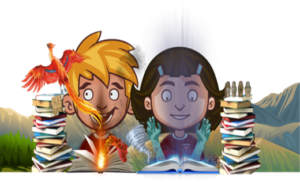Assessment Grids
100 Books to read
Ferndale Reading Spine
Our Vision
At Ferndale, we want to foster a lifelong love of reading regardless of ability or background. Carefully selected texts including stories, poems and non-fiction are shared with children to develop vocabulary, language comprehension and most importantly, a love of reading. Our reading spine incorporates books which deal with real life issues, have differing main characters or which reinforce the curriculum studied. We aspire for our children to be able to talk about a range of authors’ work using it for inspiration in their own writing. As children move from developing to more confident and independent readers, our reading curriculum reflects the skills required to do this.
Intent
We are determined that every pupil will learn to read, regardless of their background, needs or abilities. All pupils, including the weakest readers, should make sufficient progress to meet or exceed age-related expectations. Through our phonics programme and a rigorous approach to the teaching of reading, we will enable our pupils to become successful, fluent readers who go onto developing their love of reading into Key Stage 2 and beyond. Being able to read is the most important skill children will learn during their early schooling and has far-reaching implications for lifelong confidence and well-being. Reading is high-priority throughout all curriculum areas at Ferndale. (Taken from Phonics and Early Reading Policy)
Implementation
Using our reading toolkits, children are explicitly taught the skills of vocabulary, retrieval, inference and author’s choice through a weekly cycle of lessons around a quality text. To support independent application of these skills, the final lesson of the week is with a new text and focuses on using all these skills whilst developing their scanning strategies. These skills are used and applied across the curriculum when reading texts, for example in history, geography, science and current affairs.
Staff support children in developing their long term memory of facts and skills through a robust system of reviewing and revisiting their learning. Children learn new ideas by reference to ideas they already know and our sequenced curriculum ensures that children have the prior knowledge to master new ideas. We understand that this reviewing of skills is effective only if teachers elaborate on them, and direct children’s attention to the crucial similarities between existing knowledge and what is to be learned. Teachers should build on what children already know to support them in making further progress. (See Teaching and Learning Policy for more information.)
Staff know who the lowest 20% are in their classes and be put in place additional opportunities for reading and interventions.
Reading Spine
Ferndale’s Reading Spine is based on Pie Corbett’s principle that children should receive a wealth of engaging, quality texts as part of regular class story time. The texts selected are either from Pie Corbett’s recommended reading spine texts or because they are linked to the particular topic for that year group. Throughout class story time, PSHE/ SEMH issues that occur within the texts, such as loss, can be explored in an age-appropriate manner. The books are subject to change, depending upon changes to topic, new releases or issues we feel year groups may need to explore.
Each class also has access to a range of books promoting diversity to supplement their reading diet within class.
Impact
Reading in our school is progressive and planned to meet the needs of all children. Assessments are carried out regularly to ensure children are accessing books at the right level and are being challenged in their reading. At the same time, we provide books to ensure that children read for pleasure and learn to love reading. When children are keeping up with the curriculum, they are deemed to be making expected or more than expected progress. In addition, we measure the impact of our curriculum through the following methods:
- Phonics assessment;
- Phonics screening results;
- Book band colour – assessed using Benchmarking and our learning ladders;
- Teacher assessment through the reading domain cycle;
- Weekly assessment of skills through an unseen text;
- End of Key stage SATs results.
For children who are making less than expected progress, Salford reading tests are used to identify reading ages to support specific interventions which are run in half termly cycles.

